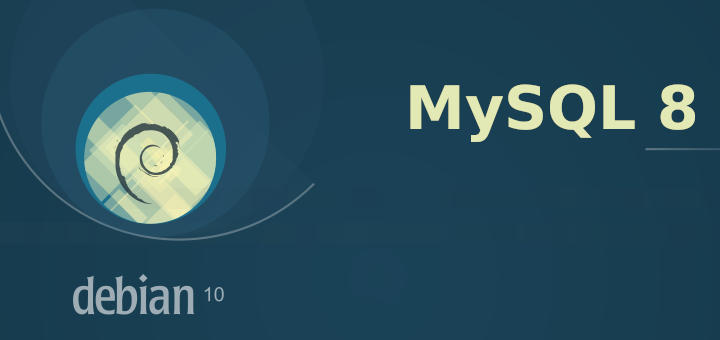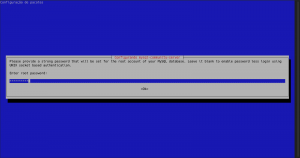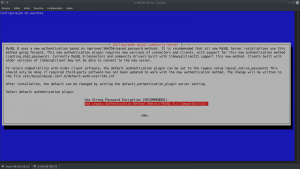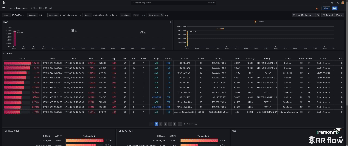Como instalar o MySQL 8 Server (Oracle) no Debian 10 Buster

Desde o lançamento do Debian o mysql foi substituído mariadb. Neste tutorial vamos aprender a fazer a instalação do MySQL
A equipe do MySQL Release Engineering fornece repositórios para o Debian 10 Buster incluindo o servidor MySQL 8.0.
Requisitos:
– Debian 10 (Instalação limpa)
# apt install wget gnupg vim apt-transport-https
Adicione o Repositórios da Oracle.
# echo -e "deb http://repo.mysql.com/apt/debian/ buster mysql-8.0\ndeb-src http://repo.mysql.com/apt/debian/ buster mysql-8.0" > /etc/apt/sources.list.d/mysql.list
Antes de atualizar o repositório você deve adicionar a chave pública.
# wget -O /tmp/RPM-GPG-KEY-mysql https://repo.mysql.com/RPM-GPG-KEY-mysql # apt-key add /tmp/RPM-GPG-KEY-mysql
Atualizamos o repositório e instalamos o mysql-sever da Oracle
# apt update # apt install mysql-server
Defina a senha de root do MySQL

No MySQL 8 a autenticação é diferente de seus antecessores, e até o momento não é reconhecido pelo PHP 7, o que gera o erro “The server requested authentication method unknown to the client” ao tentar conectar-se.
A não ser que você realmente saiba o que esta fazendo selecione : Use Legacy Authentication Method (Retain MySQL 5.x Compatibility)

Aumentando a segurança do Mysql
# mysql_secure_installation
Defina o nível de segurança de acordo com suas necessidades.
Securing the MySQL server deployment. Enter password for user root: VALIDATE PASSWORD COMPONENT can be used to test passwords and improve security. It checks the strength of password and allows the users to set only those passwords which are secure enough. Would you like to setup VALIDATE PASSWORD component? Press y|Y for Yes, any other key for No: Y There are three levels of password validation policy: LOW Length >= 8 MEDIUM Length >= 8, numeric, mixed case, and special characters STRONG Length >= 8, numeric, mixed case, special characters and dictionary file Please enter 0 = LOW, 1 = MEDIUM and 2 = STRONG: 2 Using existing password for root. Estimated strength of the password: 50 Change the password for root ? ((Press y|Y for Yes, any other key for No) : ... skipping. By default, a MySQL installation has an anonymous user, allowing anyone to log into MySQL without having to have a user account created for them. This is intended only for testing, and to make the installation go a bit smoother. You should remove them before moving into a production environment. Remove anonymous users? (Press y|Y for Yes, any other key for No) : Y Success. Normally, root should only be allowed to connect from 'localhost'. This ensures that someone cannot guess at the root password from the network. Disallow root login remotely? (Press y|Y for Yes, any other key for No) : Y Success. By default, MySQL comes with a database named 'test' that anyone can access. This is also intended only for testing, and should be removed before moving into a production environment. Remove test database and access to it? (Press y|Y for Yes, any other key for No) : Y - Dropping test database... Success. - Removing privileges on test database... Success. Reloading the privilege tables will ensure that all changes made so far will take effect immediately. Reload privilege tables now? (Press y|Y for Yes, any other key for No) : Y Success. All done!
Dica.
Se você for fazer a instalação do phpMyAdmin crie o usuario da seguinte forma:
CREATE DATABASE phpmyadmin CHARACTER SET utf8 collate utf8_bin; CREATE USER 'pma'@'localhost' IDENTIFIED BY 'SUA_SENHA'; GRANT ALL PRIVILEGES ON phpmyadmin.* TO 'pma'@'localhost' WITH GRANT OPTION; FLUSH PRIVILEGES; EXIT;
Parabéns! Você concluiu! Gostou?

Se não puder doar pode deixar seu agradecimento nos comentário também ficarei feliz em saber que ajudei. Se tiver qualquer pergunta deixe-a também. Se preferir entrar em Contato clique aqui.
Abraço!






Muito obrigado pelo tutorial, deu super certo!!!
Deu certo, pra mim também. Muito Obrigado !
Show! Muito bom o tutorial passo a passo. Funcionou perfeitamente. Nunca tinha conseguido instalar o MySql-Server8